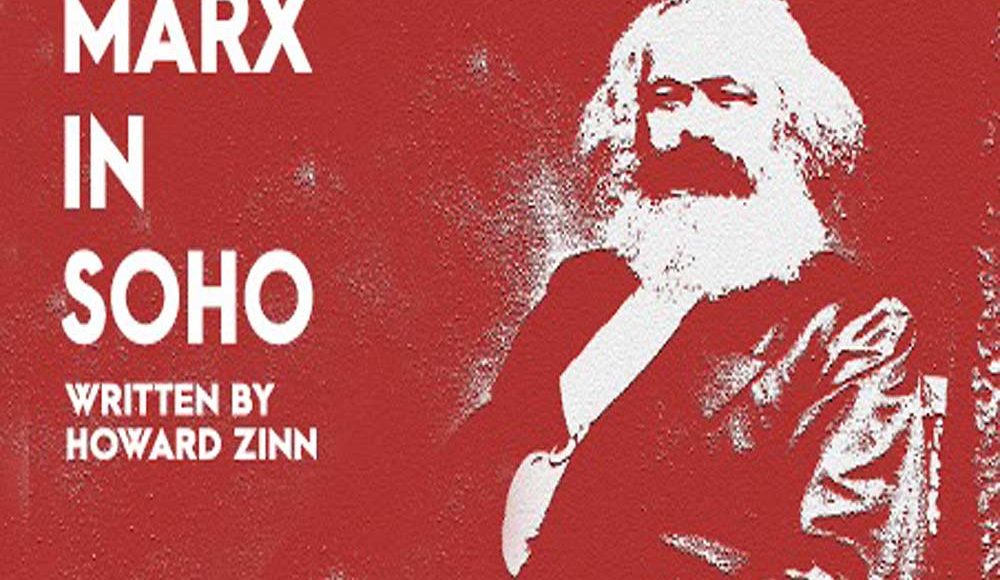By Ernest Kearney — Howard Zinn, the socialist academic, is most familiar as the author of the 1980 revisionist A People’s History of the United States, which managed and still manages to rattle the cages of historians on both sides of the political spectrum.
But Zinn’s literary efforts were far more extensive even producing three dramatic works, Emma (1976) about American Anarchist, and activist, Emma Goldman, Daughter of Venus (1985) a family drama revolving around the nuclear disarmament movement, and his short piece Marx in Soho (1999).
The Social Stage on Wilshire Boulevard, which attempts the interesting fusion of theatre and “salon”, has mounted Zinn’s evening with Karl Marx, economic philosopher, political theorist and journalist, in his London Soho flat where he and his family lived from 1849 to his death in 1883.
Opening in Marx’s living room as we watch clips from Fox News of school shootings, the Bitcoin market and Putin we are easily lead from Marx in Soho to Marx in Noho, as Marx (Gera Hermann) reminds us how far removed from the woes of Victorian capitalism — the inequality of wealth, the homeless on the streets of London and the stifling poverty contrasting the affluence of the society — we are today.
Hermann is both believable and engaging as Marx, who repeatedly reminds us that he is not a “Marxist.” Director Ye’ela Rosenfeld succeeds in removing Marx from the pedestal and in stripping off the marble encasement to present the audience with a man who is first and foremost deeply moved by the suffering of those he sees about him, and who cannot understand how a society can ignore its citizens sleeping in the streets. Filling the window of Marx’s flat is a factory in the distance with a flag proudly waving which slowly, almost imperceptibly, falls into disuse and ruin, giving a nice touch that also serves as the handwriting on the wall.
Whatever flaws, with which one might challenge Zinn’s historical writing, Marx in Soho is a straightforward and precise depiction of the great man reinforcing Marx’s adage: “The most revolutionary act one can engage in is to tell the truth.”
An unfortunate short run of this play is its only flaw. Tickets are offered at “Pay What You Can Afford” and each performance is followed by a “conversation about Marxism.” Serious discussion and solid drama, a wonderful combination.
♦ ♦ ♦
We are The TVolution:
a boutique Arts & Entertainment website,
spreading the word about local events,
creative projects and independently backed artistic offerings.
Like us on Facebook
Follow us on Twitter @theTVolution
Please Subscribe to our Newsletter
(Box on the Left Rail)
We Thank You for Supporting the Voices of TheTVolution
Looking for More Events? Click HERE





